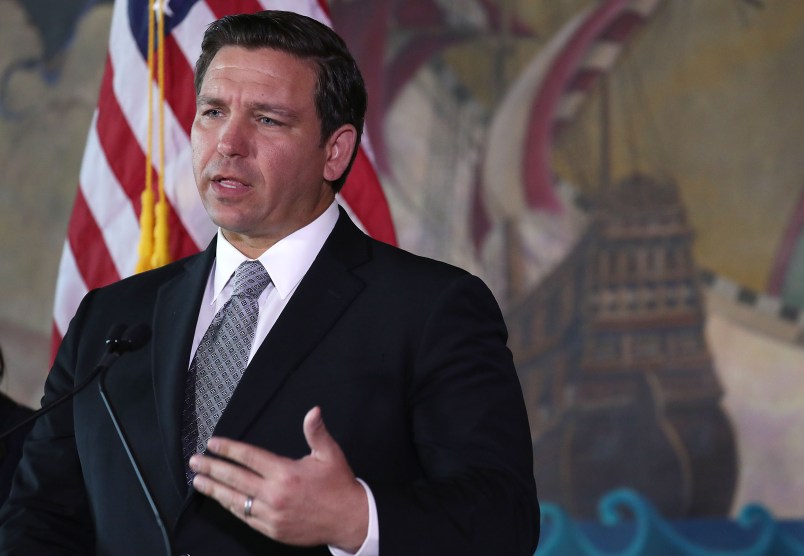Florida will not be allowed to block ex-felons who cannot afford to pay certain court fees from registering to vote or voting, a federal judge said in a preliminary injunction issued Friday.
The order was a victory for those who had challenged a new GOP law that undermined a 2018 constitutional amendment restoring the right to vote to most ex-felons in the state.
While also denying the state’s request to dismiss the case, U.S. District Judge Robert Hinkle suggested the GOP law may be a unconstitutional tax on voting, though he said he did not need to make “definitive” ruling on the question at this time.
“When an eligible citizen misses an opportunity to vote, the opportunity is gone forever; the vote cannot later be cast,” Hinkle wrote, explaining why he was imposing the preliminary injunction in the case. “So when a state wrongly prevents an eligible citizen from voting, the harm to the citizen is irreparable.”
After Florida voters approved the constitutional amendment, which stood to expand the franchise to 1.4 million people, Republican lawmakers passed a bill that required that those ex-felons pay back all fines and fees. Those financial obligations included administrative fees meant to fund courthouse operations and not just those associated with their sentences.
According to an expert analysis conducted for the case, only about 20 percent of ex-felons have paid all of those financial obligations. Florida is notorious for its heavy use of court fees to fund its judicial system.
Hinkle said the ballot initiative’s language “standing alone, could be read to include, or not to include, fines and restitution.” But, he said, it was a “stretch” to say voters intended to require that felons pay the fee, for instance, for their use of a public defender.
“And the same could be said of some if not all of the other fees,” he wrote.
Hinkle issued his order as Florida’s Supreme Court, at the request of the state, is considering whether the ballot initiative itself requires the repayment of all financial obligations.
The state had unsuccessfully asked Hinkle to hold off on his preliminary proceedings until the Supreme Court issued its opinion. The request, given the Supreme Court’s rightward tilt, was an apparent attempt to short circuit the federal judge from blocking the law.
While the Florida Supreme Court’s ultimate opinion may render moot some issues, Hinkle was considering in the litigation, others will remain for him to resolve, he said.
More immediately, his decision will have an impact on Florida’s local elections next month.
Read his opinion below:







Power to (some of) the people, right Flo’duh?
This only illustrates how much stuff is going on across the country that gets little attention
because Trump gobbles up the news pages. Every time I hear about a new Executive Order I shudder, because it almost inevitably screws someone or destroys something that shouldn’t be destroyed, and the public doesn’t even really know about it. Someone earlier brought up Trump’s order that may tend toward privatizing Medicare and increasing its cost to those covered. We don’t have a nation of laws anymore. Laws are ignored and twisted, as in Florida, because Republicans don’t like them, or ignored and distorted or discarded by executive act.
When did we become a monarchy, ‘cause this government sure is acting like one?
It sounds like the state of Florida is funding their justice system like Missouri municipalities run their municipal courts. The fines and fees are stack on top of one another, and poor people have a hard time getting them paid off.
But won’t this allow Donnie to vote if/when he gets out?
Depends on where he registers, and which property he considers his primary domicile. Would also depend what properties he has left after civil forfeiture.